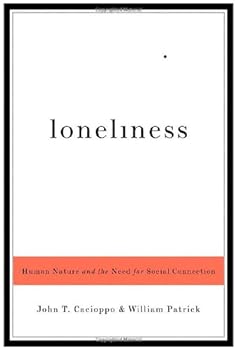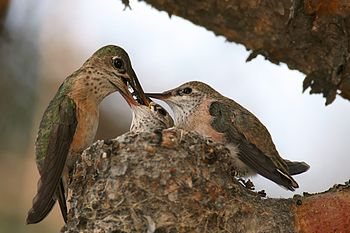BY CARL ZIMMER
In 2011, a 66-year old retired math teacher walked into a London neurological clinic hoping to get some answers. A few years earlier, she explained to the doctors, she had heard someone playing a piano outside her house. But then she realized there was no piano.
The phantom piano played longer and longer melodies, like passages from Rachmaninov’s Piano Concerto number 2 in C minor, her doctors recount in a recent study in the journal Cortex. By the time the woman – to whom the doctors refer only by her first name, Sylvia – came to the clinic, the music had become her nearly constant companion.
People with such musical hallucinations usually are psychologically normal – except for the songs they are sure someone is playing.
Scientists were able to compare Sylvia’s brain activity when she was experiencing hallucinations that were both quiet and loud – something that had never been done before. By comparing the two states, they found important clues to how the brain generates these illusions – clues that may also shed light on how our minds make sense of the world.
The study was based on a simple idea. Sometimes people with musical hallucinations say that hearing real music can quiet the imaginary tunes.
It turned out that Sylvia found that music by Bach sometimes eased her hallucinations. When Sukhbinder Kumar, a staff scientist at Newcastle University in England and one of the study’s co-authors, measured the effect, he found a consistent pattern: Once the Bach stopped, Sylvia had seconds of relief from the hallucinations. Then the hallucinatory piano returned, reaching full strength about a minute and a half after the Bach ended.
For the experiment, Sylvia put on earphones and sat with her head in a scanner that detects the magnetic field produced by the brain. On the day of the study, she was hearing selections from Gilbert and Sullivan’s “H.M.S. Pinafore.”
Every few minutes the scientists switched to Bach for 30 seconds, to tamp down the hallucination. When the real music stopped, Sylvia used a keyboard to rate the strength of her hallucinations while the scanner recorded her brain activity.
Dr. Kumar and his colleagues found that a few regions of Sylvia’s brain consistently produced stronger brain waves when the hallucinations were louder.
It turned out that they are regions that we all use when we listen to music. One region becomes active when we perceive pitch, for example.
Dr. Kumar argues that these results support a theory developed by Karl Friston of the Wellcome Trust Center for Neuroimaging. (Dr. Friston is a co-author of the new study.) Dr. Friston has proposed that our brains are prediction-generating machines.
Our brains, Dr. Friston argues, generate predictions about what is going to happen next, using past experiences as a guide. When we hear a sound, particularly music, our brains guess at what it is and predict what it will sound like in the next instant. If the prediction is wrong, our brains quickly recognize that we are hearing something else and make a new prediction.
Scientists have long known that people with musical hallucinations often have at least some hearing loss. Sylvia, for example, needed hearing aids after getting a viral infection two decades ago. Dr. Kumar’s theory could explain why some people with hearing loss develop musical hallucinations. With fewer auditory signals entering the brain, their error detection becomes weaker. If the music-processing brain regions make faulty prediction, those predictions only grow stronger until they feel like reality. “There is nothing from the senses to constrain them,” Dr. Kumar said.
Dr. Kumar and his colleagues are now using their experimental method on more people with musical hallucinations. If the theory holds up, it could explain why real music provides relief for musical hallucinations: The incoming sounds reveal the brain’s prediction errors. And it may also explain why people are prone to hallucinate music.
“Music is more predictable,” said Dr. Kumar. “That makes it more likely as a phenomenon for hallucinations.”
Taken from TODAY Saturday Edition, March 8, 2014
In 2011, a 66-year old retired math teacher walked into a London neurological clinic hoping to get some answers. A few years earlier, she explained to the doctors, she had heard someone playing a piano outside her house. But then she realized there was no piano.
The phantom piano played longer and longer melodies, like passages from Rachmaninov’s Piano Concerto number 2 in C minor, her doctors recount in a recent study in the journal Cortex. By the time the woman – to whom the doctors refer only by her first name, Sylvia – came to the clinic, the music had become her nearly constant companion.
People with such musical hallucinations usually are psychologically normal – except for the songs they are sure someone is playing.
Scientists were able to compare Sylvia’s brain activity when she was experiencing hallucinations that were both quiet and loud – something that had never been done before. By comparing the two states, they found important clues to how the brain generates these illusions – clues that may also shed light on how our minds make sense of the world.
The study was based on a simple idea. Sometimes people with musical hallucinations say that hearing real music can quiet the imaginary tunes.
It turned out that Sylvia found that music by Bach sometimes eased her hallucinations. When Sukhbinder Kumar, a staff scientist at Newcastle University in England and one of the study’s co-authors, measured the effect, he found a consistent pattern: Once the Bach stopped, Sylvia had seconds of relief from the hallucinations. Then the hallucinatory piano returned, reaching full strength about a minute and a half after the Bach ended.
For the experiment, Sylvia put on earphones and sat with her head in a scanner that detects the magnetic field produced by the brain. On the day of the study, she was hearing selections from Gilbert and Sullivan’s “H.M.S. Pinafore.”
Every few minutes the scientists switched to Bach for 30 seconds, to tamp down the hallucination. When the real music stopped, Sylvia used a keyboard to rate the strength of her hallucinations while the scanner recorded her brain activity.
Dr. Kumar and his colleagues found that a few regions of Sylvia’s brain consistently produced stronger brain waves when the hallucinations were louder.
It turned out that they are regions that we all use when we listen to music. One region becomes active when we perceive pitch, for example.
Dr. Kumar argues that these results support a theory developed by Karl Friston of the Wellcome Trust Center for Neuroimaging. (Dr. Friston is a co-author of the new study.) Dr. Friston has proposed that our brains are prediction-generating machines.
Our brains, Dr. Friston argues, generate predictions about what is going to happen next, using past experiences as a guide. When we hear a sound, particularly music, our brains guess at what it is and predict what it will sound like in the next instant. If the prediction is wrong, our brains quickly recognize that we are hearing something else and make a new prediction.
Scientists have long known that people with musical hallucinations often have at least some hearing loss. Sylvia, for example, needed hearing aids after getting a viral infection two decades ago. Dr. Kumar’s theory could explain why some people with hearing loss develop musical hallucinations. With fewer auditory signals entering the brain, their error detection becomes weaker. If the music-processing brain regions make faulty prediction, those predictions only grow stronger until they feel like reality. “There is nothing from the senses to constrain them,” Dr. Kumar said.
Dr. Kumar and his colleagues are now using their experimental method on more people with musical hallucinations. If the theory holds up, it could explain why real music provides relief for musical hallucinations: The incoming sounds reveal the brain’s prediction errors. And it may also explain why people are prone to hallucinate music.
“Music is more predictable,” said Dr. Kumar. “That makes it more likely as a phenomenon for hallucinations.”
Taken from TODAY Saturday Edition, March 8, 2014






















































